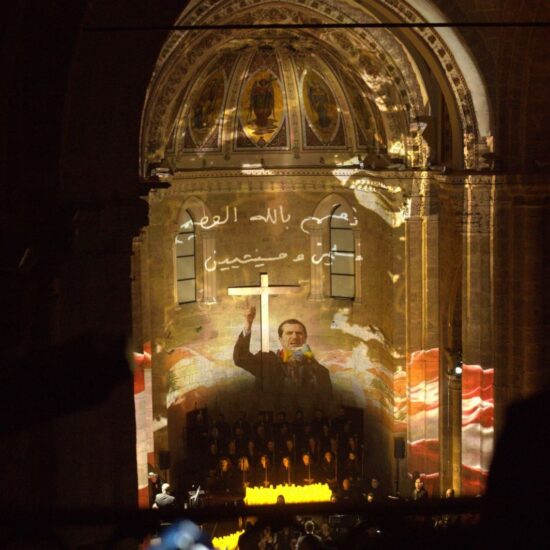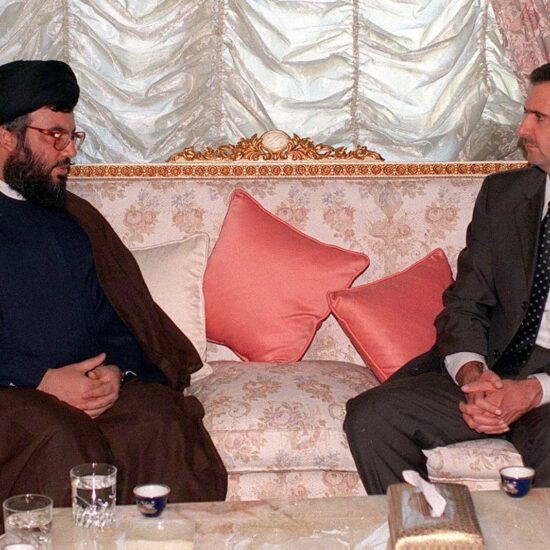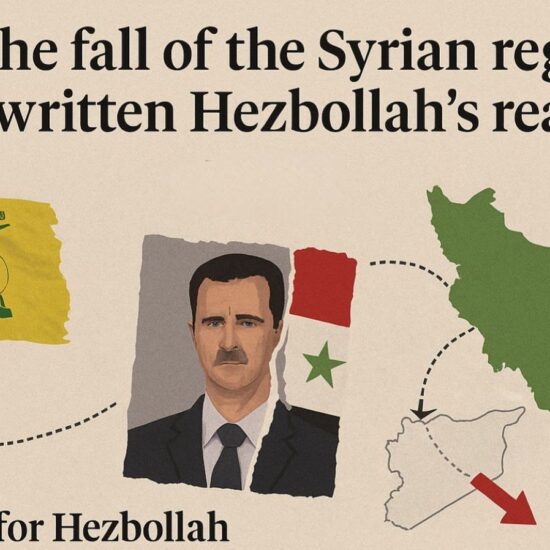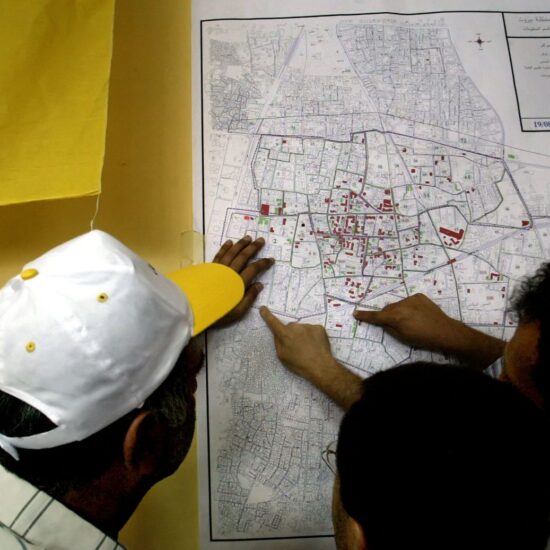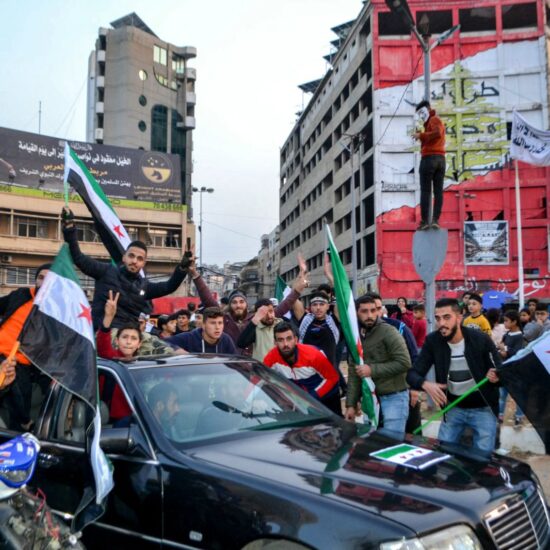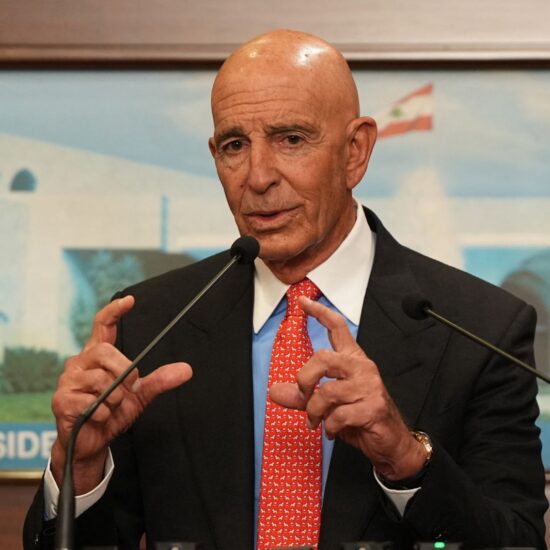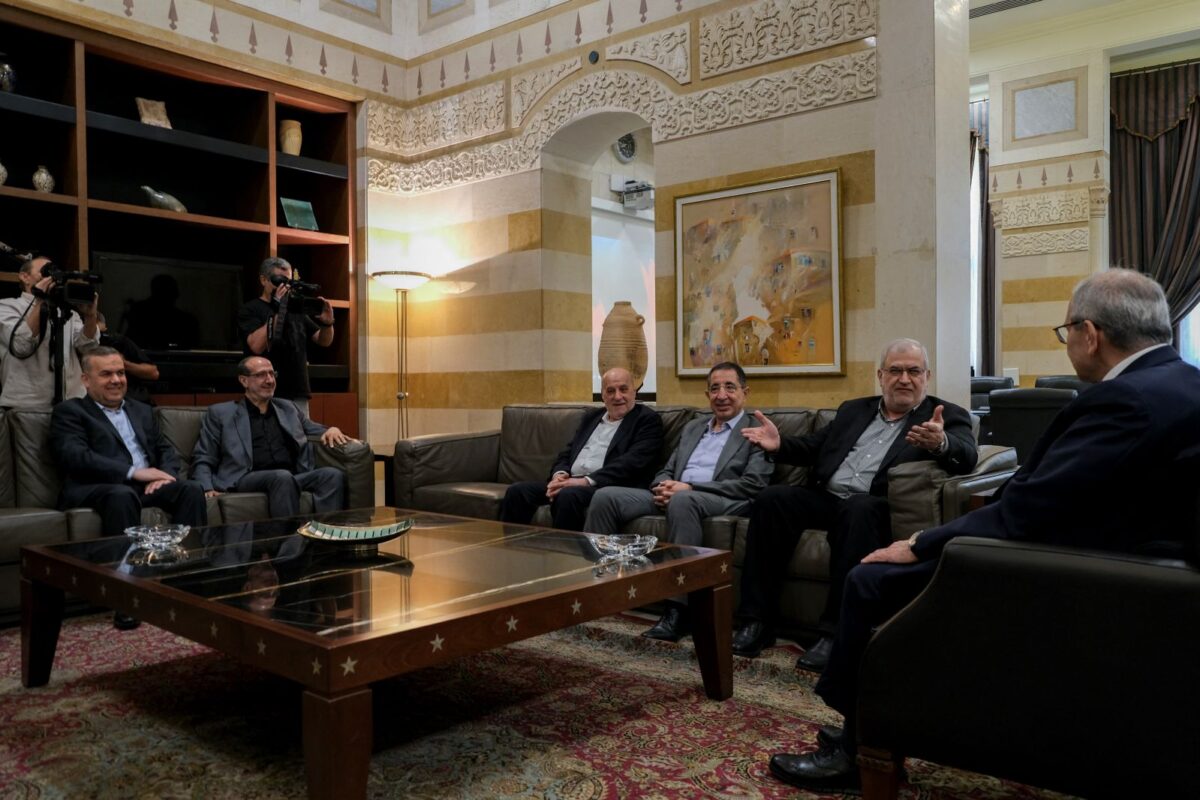
The continued paralysis over reforms reflects entrenched political resistance and fears of upsetting Hezbollah’s influence splurging thousands of dollars on YouTube advertisements will drive international foreign direct investments in. Yes, while the country drowns in economic chaos and cries out for real reforms, our leaders have heroically decided that flashy online ads are the answer. Who needs actual progress when you can just buy views and likes, right?
The Lebanese government had been active on promoting reforms on YouTube campaigns. For many this “ groundbreaking achievement” is diverting the opinion stalling on critical economic reforms demanded by the IMF and international donors, undermining prospects for financial aid and reconstruction support. It is true that the growing Israeli threats and Lebanon’s reform deadlock together jeopardize Lebanon’s sovereignty and economic recovery , however the political junta has turned a cold shoulder on disarmament needs as regional security risks rise, potentially triggering renewed conflict . Lebanon’s economy remains severely depressed, and poverty and unemployment are exceptionally high since the 2019 crisis. The banking sector collapse continues to hamper economic activity and provision of credit, with depositors unable to access their funds. Infrastructure and housing destruction and displacement resulting from the recent conflict have further exacerbated Lebanon’s challenges. Humanitarian and reconstruction needs are substantial and require coordinated international support. This paralysis reflects entrenched political resistance and fears of upsetting Hezbollah’s influence splurging thousands of dollars on YouTube advertisements will drive international foreign direct investments in. Yes, while the country drowns in economic chaos and cries out for real reforms, our leaders have heroically decided that flashy online ads are the answer. Who needs actual progress when you can just buy views and likes, right? Bloggers are already making fun of the campaign; “Never had them before, first time was yesterday, which tells me it’s a demographic target-based ad” said “ScarsStitches800” a blogger on Reddit. Another influencer who goes by the name of r/Lebanon Lebanon Reddit community ) quoted : “has anyone been getting like these really weird youtube ads? about hezb(allah) and how they’re like a “sick man” who we should kick down asap? the latest had been like you know these “ballerina cappuccina” and “bombardino croccodilo”? it goes something like bormbardino hezbello no arabito no nassralino”.
On X ( former Twitter ) bloggers were echoing the same disappointment over the ministers shows. An influencer quoted : “Just watched Amer El Bassat’s interview on Al-Jadeed (yesterday), and I’m beyond disappointed. How can the Minister of Economy, even with years as a financial trader, seem to have no clue about resolving the deposit saga or the Eurobonds debacle? Lebanon is drowning in economic crises, yet the solutions offered were vague and lacked any real strategy. It’s incredibly frustrating to watch someone with his supposed expertise fail to address the core issues with the clarity and decisive action they demand. Are we really expected to believe that after years in finance, he has no viable plan for these critical problems? Lebanese citizens deserve leaders who understand the gravity of the situation and can provide real, actionable solutions, not just empty promises”.
An IMF statement issued after a visit of the IMF to Beirut last month quoted : “…these steps (Lebanon taken reforms) are insufficient to address the ongoing economic, financial, and social challenges. A comprehensive strategy for economic rehabilitation is critical to restore growth, reduce unemployment, and improve social conditions.”
Meanwhile, the ever-elusive issue of Hezbollah’s disarmament is still “under consideration” — which is a polite way of saying it’s gathering dust on the back burner. No rush, Lebanon. After all, why tackle thorny security problems when you can focus on perfecting your social media presence? To be noted is that YouTube’s advertising reach in early 2023 covered an impressive 90.5% of Lebanon’s total population. Notably, YouTube’s ad reach exceeded 100% of Lebanon’s total internet user base in January 2023. No figures are available for 2025 yet. There is still ambiguity over the production of Lebanon YouTube ads finance and its authors. Was the campaign summoned by the council of ministers ? On average, managing a social media account in Lebanon can cost anywhere from around $15 to $200 per day, which translates to approximately $450 to $6,000 per month paid to your agency or consultant.
Is the legitimacy of the government at stake?
The dynamic duo, Salam and Aoun once hailed as the heralds of a new Lebanese era, now seem more like the stars of a political sitcom: great at making noise, but not so great at delivering results. Their government’s motto might as well be: “Look at our ads, ignore the reforms.”
The cost of lost opportunities has been highlighted by reports by Konrad Adenauer Stiftung and Arabnet – Braving the Storm: Safeguarding the Lebanese Innovation Economy and followed-up with the articles Lebanese Innovation Ecosystem Post-Crisis Assessment – Part 1: Talent and Part 2: Access to Capital in January 2023. The report notes that the country’s economic crisis has severely impacted the Lebanese innovation ecosystem, much like the wider economy. Between 2017 and 2021, yearly total investments in local startups shrank by more than 70 percent, from $54 million to $16 million. The number of startup investment deals dropped from 56 to 12, which puts Lebanon in 14th place when it comes to the number of investments among 18 MENA countries, from second place in 2017. The resulting toxic environment has also led several startups to relocate outside of Lebanon, with an estimated 55 percent of companies having moved either their entire or part of their business abroad.
So, is this the rise and fall of Salam and Aoun? Or just another chapter in Lebanon’s long-running drama of grand promises and empty gestures? One thing’s for sure — while the YouTube views keep climbing, the hope for real change is stuck buffering.
Evidently, the government is stalling on promised reforms and failing to get a place under the sun as Syria starts rebuilding and enjoying international assistance.
Stalling on promised reforms and failing to secure a role in the region’s recovery—as Syria begins to rebuild and attract international support—is that change in Lebanon has been largely cosmetic, Dr Peter Germanos retired judge military prosecutor and political activist told NOWLEBANON. The deep state remains firmly in place, even if not embodied by the same individuals, he added.
Why are reforms stalling?
Germanos fears that in reality, the true president of Lebanon is the Speaker of Parliament, Nabih Berri, whose influence has steadily risen since 1984. For the past four decades, he has been the de facto ruler of the country. Berri has mastered the art of wearing multiple hats: acting as Washington’s go-to man while simultaneously serving as the key negotiator and power broker for Hezbollah, he quoted. He has also forged strategic alliances with Lebanese political leaders such as Walid Jumblatt, Saad Hariri, and several Christian figures.
Moreover, the current government, headed by Nawaf Salam, is expected to be short-lived and lacks the strength to challenge the entrenched deep state controlled by the so-called “resistance duo”—Hezbollah and Amal, he said. Notably, this duo is directly represented in Salam’s cabinet and holds the powerful Ministry of Finance, he noticed.
According to Germanos, Lebanon is not simply missing a green light—it has lost its ability to govern altogether.
The reasons are historic, since 1969, Lebanon has effectively forfeited control over its foreign policy he underlined. It first became a hostage to the radical pan-Arab Nasserist camp, then fell under the grip of Hafez al-Assad’s regime, and later into the hands of Iran’s Revolutionary Guard. The expectation was that the new Lebanese leadership would adapt to shifting regional dynamics and align with the emerging, Western-oriented Syrian state. But Lebanon, once again, refused to embrace change and chose to remain in the Tehran axis.
This refusal stems from several deeply rooted factors: the overwhelming influence of the Shiite duo (Hezbollah and Amal); the complicity of many Sunni and Christian political forces in the corruption network that benefited from the Syrian-Iranian system; and the absence of a strong, sovereign Sunni political party capable of supporting Christian sovereigntist forces, Germanos quoted.
I have often described Lebanon as the “Cuba of the Mediterranean”—a state that is outwardly democratic, but in truth a radical leftist republic ruled by mafia-like structures, its people are impoverished, while its political elites are among the region’s wealthiest, he quoted.
The collapse of the economy was not accidental—it was engineered, he believed . A ruling class composed of a corrupt “mafiocracy”, in alliance with Hezbollah and the Amal Movement, systematically dismantled the Lebanese state and its economic model. What replaced it is a shadow economy dominated by fuel smugglers, counterfeiters, and narco-financiers. As a result the middle class was crushed, the legal private sector gutted, and capital transferred to illicit networks in the biggest wealth transfer Lebanon has ever seen. International sanctions have already been imposed by the U.S. Treasury on key Lebanese figures. The world is watching—and judging.
Opportunities still exist, but …
According to Germanos, Lebanon stands at a crossroads where real opportunities do exist, on the agenda is natural gas development in the Eastern Mediterranean, a reintegration into regional trade via Syria’s reconstruction, reviving a service-based economy through digital finance, tourism, and education and finally attracting sovereign investments from the Gulf, if governance improves
However these can only be leveraged under a completely new political framework, he said, Lebanon need not to remain as a cautionary tale: a failed state ruled by a mafia elite, where opportunity is devoured by corruption, and where hope is exiled with the youth. The moral cost of that is a lost generation, a betrayed nation, and a future mortgaged to organized crime he underlined.
Today, Hezbollah, Amal, and their political allies have no genuine interest in reform. They benefit from the existing cash economy, which enables them to operate outside legal and institutional frameworks. Six years have passed since the beginning of the crisis, and the ruling elite has bet on the population gradually resigning itself to the loss of its savings. Meanwhile, the judiciary remains paralyzed, accountability is non-existent, and corruption continues unchecked.
Reforms are far fletched hoped
Anyone expecting meaningful banking or public sector reform from this system is, quite frankly, delusional. This “mafiocratic” ruling class has committed what amounts to “economic genocide” against its own people. It is structurally incapable—and morally unwilling—to implement any reforms that would serve the public good, Germans said.
For many observers, the ongoing influence of Hezbollah and other vested interests affect Lebanon’s ability to implement comprehensive reforms and attract international support. According to Germanos, Hezbollah is the primary force responsible for Lebanon’s ongoing economic collapse and its isolation from regional trade routes, particularly with the Gulf. The group has systematically undermined the country’s economic foundations and blocked any serious path to reform. The group deliberately crippled commercial activity in downtown Beirut by supporting the erection of protest tents and later orchestrating road closures under the pretext of securing the Parliament’s surroundings—effectively paralyzing the economic heart of the capital. Furthermore, by promoting and sustaining a shadow cash economy—through institutions like Al-Qard Al-Hassan and other suspicious financial networks—Hezbollah has pushed Lebanon onto the Financial Action Task Force’s (FATF) grey list, and there is growing fear that the country may soon be placed on the blacklist.
Hezbollah’s control over the economy is not incidental—it is strategic. It thrives on lawlessness, operates outside the formal financial system, and has no interest in transparency or institutional accountability. Its very existence is fundamentally incompatible with a rule-of-law state and a legitimate, open economy, he said.
As long as Hezbollah maintains its grip on Lebanon’s institutions and economy, comprehensive reform is impossible, and international support will remain conditional, limited, or entirely absent. No country or institution will invest in a state where sovereignty is compromised and where a militia holds more power than the government.
Where do we go from here
Germanos concludes that there are no meaningful economic recovery, institutional reform, or establishment of the rule of law is possible in Lebanon as long as an armed militia—Hezbollah—remains more powerful than all legitimate state institutions combined. Under such conditions, any talk of reform or economic development is an illusion and a waste of time, he concluded.
The bet on IMF support no longer holds in any realistic sense unless there is a radical political shift. The IMF has made it clear: it will not release funds without concrete and credible reforms—something Lebanon’s ruling class has consistently failed to deliver over the past six years. International partners and institutions can still play a critical role, but not through unconditional aid. Their support must be strictly conditional on the full restoration of state sovereignty, the implementation of capital controls and banking reforms, judicial independence and anti-corruption measures, a clear roadmap toward demilitarizing non-state actors
Until these conditions are met, any financial assistance risks prolonging the life of a corrupt and dysfunctional system rather than enabling a new beginning he said.
In short, no international support can substitute for internal political will. And as long as Lebanon is governed by a “mafiocracy” under the shadow of an armed militia, there will be no real reform—only managed collapse.
Maan Barazy is an economist and founder and president of the National Council of Entrepreneurship and Innovation. He tweets @maanbarazy
The views in this story reflect those of the author alone and do not necessarily reflect the beliefs of NOW



